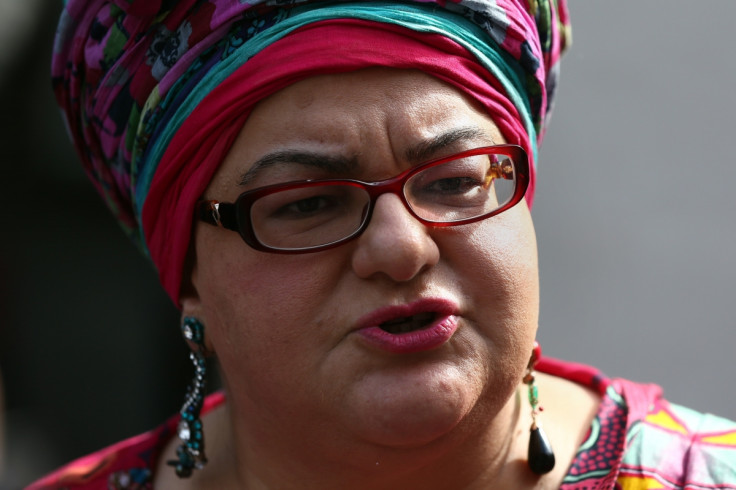Charities are uncompetitive, unwieldy and overly ego-driven - they need to adapt or die
Businesses make calculated decisions largely on facts and what's right for the company.

When funding for charities is in seemingly in irreversible decline, why are so many still around? They will tell you this is because the problems they set themselves up to tackle are also still around and so still need to be worked on, however challenging the circumstances are now.
But viewed the other way, it could be argued that they have failed to tackle the problems they promised they would and don't know what else to do with themselves. Having sat on the boards of many incredibly admirable projects over the years and chaired a few, as well as funding them, it is my categorical conclusion that the reason most still go on is because the people running them don't have a career Plan B.
The good times from three decades ago when the public purse was open to back projects and tackle problems which local councils and Whitehall had failed to recognise, like inner city squalor, have largely now gone, probably never to return.
We applauded the figures who devoted themselves – often admittedly and to be fair to them at the cost of higher paid private sector allurements as these are invariably highly intelligent, well-educated folk – to causes we were aware of, read about and felt ourselves unable to tackle, so we were grateful for their existence. They gave us an avenue to volunteer, mentor, donate or otherwise help with and we felt good about doing that, just as they did with a salary attached.
Because of my connections with high net worth individuals, City Hall and parts of national government more and more projects, some of which had prestigious reputations, over time have approached me to chair their boards. The more they did, the more I declined because they hadn't woken up to smell the coffee and realise their time was up and the model no longer worked.
State funding was effectively an outsourcing of problems they created and therefore felt it better for others to fix. Only the problems have got bigger, as did the projects created to tackle them. In so many areas, from tackling race inequalities to getting prisoners to stop re-offending to fighting global poverty, there are simply way too many people and programmes doing far too similar things.
Charities are by their very nature too emotive in their processes to make rational decisions.
Often I ask the heads of some of these projects, many of whom are personal friends whom I deeply respect for their dedication, that their Project X is very similar to Project Y and could easily cover the work of Project Z, so why don't you all merge? They could save enormously in back office resources and create much larger impact with the now scant resources and I'm sure you all know why these conversations are left unfinished – it's what I call "founder syndrome".
The people who created these charities back when there was money to finance them are invariably still their chief executives. So why Projects X, Y and Z don't merge is because two founders would lose the brands they had created and probably lose their jobs. Unlike in businesses, where a board of directors would have a fiduciary duty to recommend the best course for the company's stakeholders, charity trustees offer largely unquestioning support to the founder.
Here I invoke the case of The Kids Company. Camila Batmanghelidjh would be considered entrepreneurial in the private sector but entrepreneurs need careful, rather strict managing to bring out the best in them. I have had a business partner with me for over 15 years who regularly has to keep me out of scrapes I often wasn't aware of having created or tells me off for over-spending. That's what her chair Alan Yentob was reprimanded for not having done with her.
Charity trustees often also fail to perform a more responsible role because of the pride and social prestige they have placed in giving personal time and resources behind something that might otherwise be perceived to their contemporaries as a failure.
I once sat in on a meeting of the trustees of two charities that had a shared patron in the last Mayor of London, Boris Johnson. One of his advisors had suggested that the Mayor's Fund for London whose board was made up of the great and the good in the private sector (plus me) merge with the Mayor's Fund for Music, made up of trustees from the world of culture. It wasn't just the two chief executives who were squirming that one of them would lose their job if this went through – there was a clear sense of unease that some of the trustees would lose control over their level of engagement which, truth be told, included a bit of access to the mayor.
We don't let this nonsense happen in our own businesses – we make calculated decisions largely on facts and what's right for the company. Charities, from the research I have undertaken for my book, are by their very nature too emotive in their processes to make rational decisions.
If business leaders were to spend some time acting as chief executives of charities, they would come to the same two conclusions that I have – firstly, the work charities do can be adopted as core activities of our own enterprises because our customers would approve and therefore would win us more business and secondly, they would need to prepare an Extraordinary General Meeting for the charity board to propose merger with/sale to/acquisition of a rival or prepare for its closure.
Iqbal Wahhab OBE is the founder of London restaurants The Cinnamon Club and Roast. His book Charity Sucks is published by Biteback Publishing.
© Copyright IBTimes 2025. All rights reserved.






















